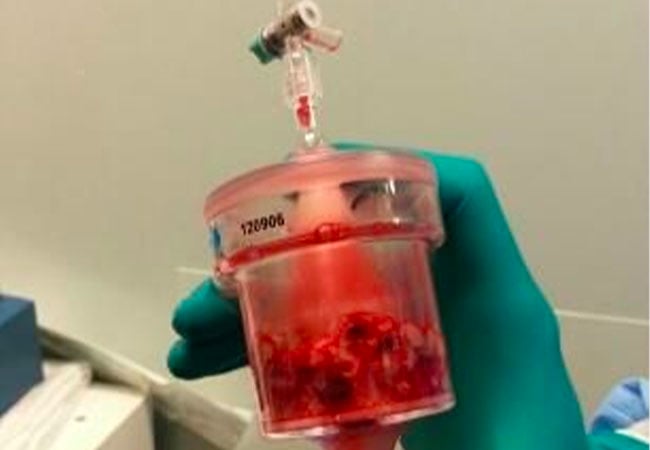
Angela Onwuzoo
A Professor of Laboratory Haematology and Blood Transfusion Science, College of Medical Sciences, University of Calabar, Cross River State, Anthony Emeribe, has appealed to blood bank operators not to compromise the standard and quality of blood transfusion service.
He emphasised that blood and patient safety is of paramount importance, adding that quality is the hallmark of blood banking.
Prof. Emeribe also noted that it is important for operators to know that the essence of blood transfusion is to save lives.
The expert, who is also a Consultant Haematologist at the University of Calabar Teaching Hospital, made the appeal during an interview with our correspondent.
The former Registrar and Chief Executive Officer of the Medical Laboratory Science Council of Nigeria said, “I emphasise on maintaining the standard in blood banking. All establishments with blood banks need to incorporate ample elements of quality improvement.
“Donor blood is required to improve the health of patients. It has become necessary to ensure quality and safety in blood banking business in the country.”
Prof. Emeribe, who is a member of the World Health Organisation Strategic Advisory Group of Experts on In-Vitro Diagnostics, expressed worry that most of the blood supply in the country was from remunerated donors.
He said, “We need to change the paradigm that we have, where most of our donors are remunerated to non-remunerated blood donors.
“We need to have quality improved in our various centres and that means engaging and training staff from time to time and emphasising on ethics in blood banking to get the best.”
The haematologist said there should be a connection between blood banks and hospitals that require blood for there to be efficiency and effectiveness of use.
He noted that donor blood is very critical in managing certain medical conditions like anaemia, childbearing, road traffic accidents, or diseases like leukaemia.
He, however, said, “In Nigeria, we are still having challenges of inadequate donor blood to fill the required shelf.
“In Nigeria, the projection is that we require up to about 1. 5m units of blood each year, but we are yet to get up to 40 per cent of that.
“In our country, most blood donors are remunerated, which should not be the case. The ideal which we are advocating for is to have non-remunerated donors.
According to the Indian Journal of Medical Research, voluntary non-remunerated blood donor means that a person gives blood, plasma or cellular components based on free will and receives no payment for it, either in the form of cash, or in kind, and which could be considered a substitute for money.
The journal noted that instead, small tokens, refreshments and reimbursements of direct travel costs are compatible with voluntary non-remunerated donation5.
Meanwhile, in a report by an online journal, PMC, titled, ‘Strengthening quality management system: An assessment of awareness and knowledge in trainees in blood bank’, the authors said that blood transfusion services are an essential component of the healthcare system that works with a motive to ensure the availability, accessibility, and adequacy to provide quality blood products.
“Transfusion of blood is a life-saving procedure. Every step from donor screening to transfusion of blood unit required a quality management system and any lowering in quality would reflect adversely on the final product
“Profound theoretical and practical knowledge is required to ensure the optimal clinical use of blood and blood products”, the authors said.
Copyright Reportr Door
All rights reserved. This material, and other digital content on this website, may not be reproduced, published, broadcast, rewritten or redistributed in whole or in part without prior express written permission from Reportr Door.
Contact: [email protected]
Leave a Reply